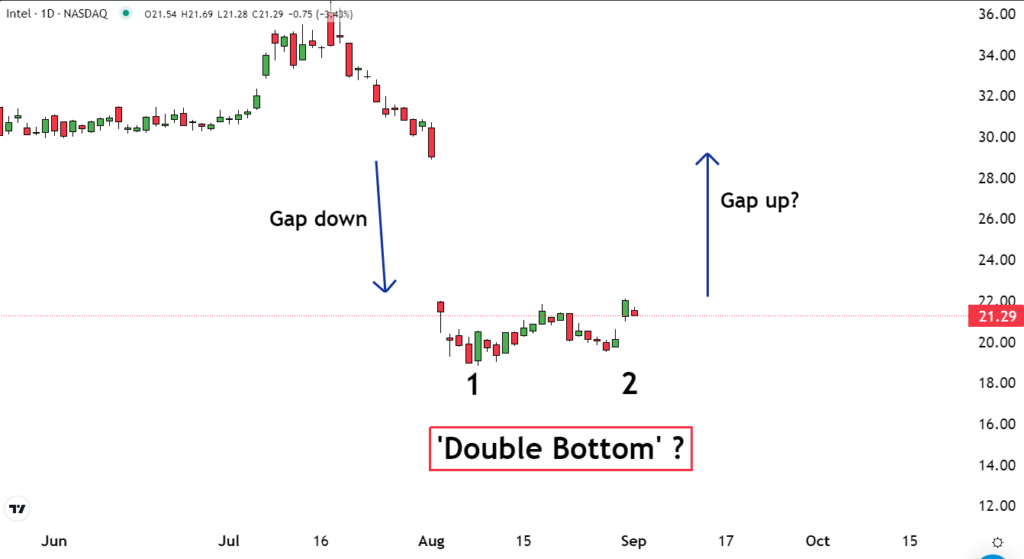“Gaps refill” is an old Wall Street saying. It is easy to understand why this occurs if trader and investor psychology are considered. It may be about to happen with shares of Intel Corporation INTC.
One of the main reasons resistance forms in a market is buyer remorse. People buy a stock and then regret doing so if the price heads lower. Many of these disappointed traders and investors decide they want to sell their positions.
But they don't want to lose money.
They decide to hold onto their stock for the time being. They also decide they will sell if it eventually returns to the same price they paid for it. This way they can get out at breakeven.

This is why there tends to be resistance at former peaks. People who bought at the top of the first peak try to sell when the stock returns to the peak's level. If there are enough of these sell orders it will create resistance.
It's also why there tends to be resistance at levels that were support. If the support breaks and the stock heads lower, some who bought before it broke will try to sell if the stock rallies back to their buy price.
If there are enough of these remorseful buyers placing sell orders it could convert what had been support into resistance.
When a stock closes at one price and opens at a different price it will appear as a blank space or ‘gap' on the chart. There is no trading at the prices the shares gapped through. As you can see on the chart, Intel gapped down in early August.
Because there was no trading at those prices, there is no one who bought. This means if the shares eventually reverse and start to move up through the levels they gapped down through, there may not be many people who would like to sell.
As a result, the buyers will need to pay successively higher prices if they want to acquire shares. This could push the shares rapidly higher through the price level they gapped down through.
In may be about to happen with Intel.
Read Next: Nvidia, TSMC Lead Chip Stocks Lower In Premarket: What’s Going On
Image: Shutterstock
© 2025 Benzinga.com. Benzinga does not provide investment advice. All rights reserved.
Trade confidently with insights and alerts from analyst ratings, free reports and breaking news that affects the stocks you care about.